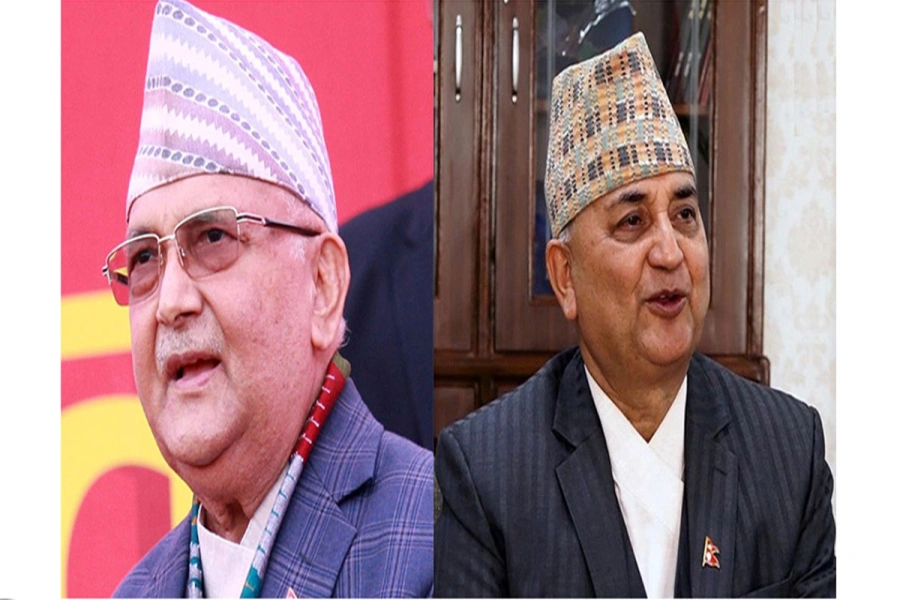KATHMANDU, March 26: Main opposition party Nepali Congress (NC) has voiced serious reservations over the decisions of the government to make key constitutional appointments through meetings of the Constitutional Council (CC) without the participation of the leader of the main opposition party as envisioned in the constitution.
The NC expressed its reservations after a CC meeting held on Monday picked Dinesh Thapaliya as chief election commissioner (CEC) even though main opposition party leader Sher Bahadur Deuba had informed in writing that he would not be able to attend the CC meeting scheduled for 3 pm. Deuba said the timing clashed with his party's parliamentary party meeting. The CC meeting also picked Bishnu Maya Ojha (Makawanpur) as a member of the National Inclusive Commission.
NC Spokesperson Bishwa Prakash Sharma alleged that the ruling party had tried to completely undermine the role of the main opposition party envisioned in the constitution. “Our party president had duly informed Prime Minister K P Sharma Oli by telephone and even in writing that he would not be able to attend the CC meeting on Monday due to our parliamentary party meeting. The government has breached the constitutional provision on participation of the main opposition party leader to ensure ownership of the picks by all parties ,” he said.
'Strange Loop' and Michael Jackson musical lead Tony nomination...

The idea of ensuring the representation of the main opposition party leader in the appointment process is to ensure that persons appointed to constitutional bodies does not work only in favor of the ruling party . “The government has breached this spirit of the constitution,” Sharma said. “It had better take such decisions through cabinet meetings if it wants to decide without the participation of the main opposition party.”
As per Article 284 of the constitution, the CC is mandated to make recommendations for the appointment of the chief justice and chiefs and officials of the constitutional bodies . The CC comprises the prime minister as chairperson and the chief justice, the speaker of the House of Representatives, the chairperson of the National Assembly, the leader of the main opposition party in the House of Representatives and the deputy speaker as members.
As per the existing CC working procedures, a CC meeting is rescheduled if the main opposition party leader is unable to attend within the next 48 hours. There is a practice of the CC going ahead with the taking of decisions if the main opposition party leader fails to show up even for the rescheduled meeting.
In a previous instance, the CC meeting headed by the prime minister had picked the heads of five various constitutional commissions on January 20 without the participation of the main opposition party leader.
The meeting picked Balananda Paudel as chairman of the National Natural Resources and Fiscal Commission, Shanta Raj Subedi as chairperson of the Inclusive Commission, Vijay Kumar Dutta as chairman of Madhesi Commission, Bishnu Kumar Chaudhary as chief of the Tharu Commission and Samim Ansari as chief of the Muslim Commission.
The main opposition party then boycotted the Parliamentary Hearings Committee meeting held to confirm these nominations. But the meeting unilaterally decided to endorse the nominations .
Constitutional expert Bhimarjun Acharya said the tendency of the government to undermine the role of the main opposition party could eventually jeopardize democracy in Nepal. “I think this situation has emerged mainly due to two reasons. While the main opposition party has failed to assert itself in parliament, the ruling party appears clearly against upholding the norms and values of parliamentary democracy,” he said. “This calls into question the long term prospects of democracy itself .”






































